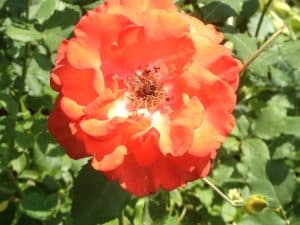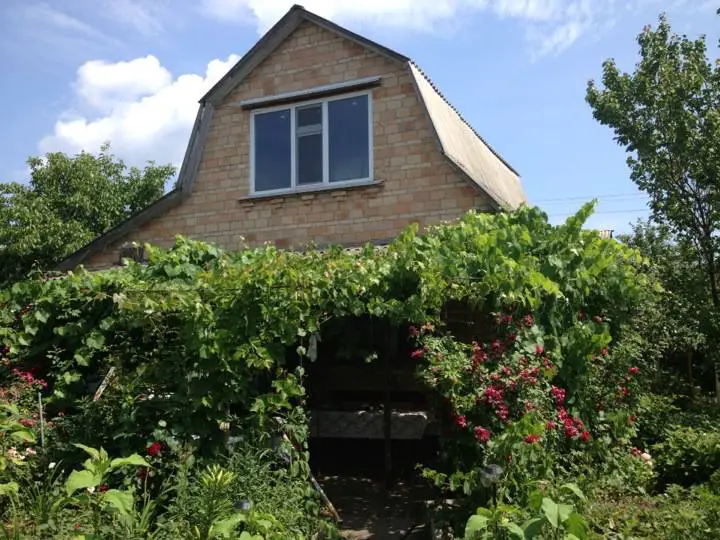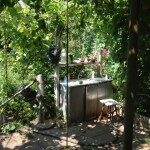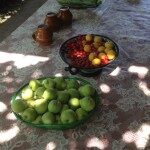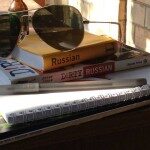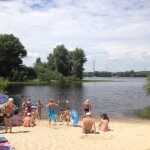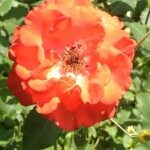During my Russian studies at Indiana University over the past two years, the concept of a “dacha” or Soviet-era summer home always intrigued me. While my family has taken multiple vacations during which we stayed in cabins in Indiana or the Great Smoky Mountains, we—like most Americans—were happy to return to our permanent home. Yet for many middle-class families in Ukraine, the opposite situation applies: they rent their permanent residence in a city apartment, yet also own a small, separate residence in the city exurbs. Given the traditional importance of home ownership in American society, such a system seems quite foreign to Americans. Thus, when my Ukrainian host family in Kyiv asked me if I would like to spend a weekend at their dacha outside the city, I immediately agreed, eager to experience a key element of summer life for many middle-class families living in Ukraine and Russia.
The word “dacha” comes from an archaic Russian expression meaning “something given,” since the first dachas were created during the time of Peter the Great as gifts to loyal vassals of the tsar. But while the dacha system was nationalized following the Bolshevik system in 1917, it was not really until the 1980s that dachas became widely popular and widely owned by families in the Soviet Union. Though often devoid of indoor plumbing and many other amenities, dachas not only provided the ideal solution for working- and middle-class families to relax amidst the summer heat, but also gave apartment-dwelling urbanites a way to grow fruits and vegetables away from the dirt and din of city life. Today, many dachas are more similar to suburban homes, although the rustic, simple dacha is still to be found. For more dacha history, see this article from SRAS.
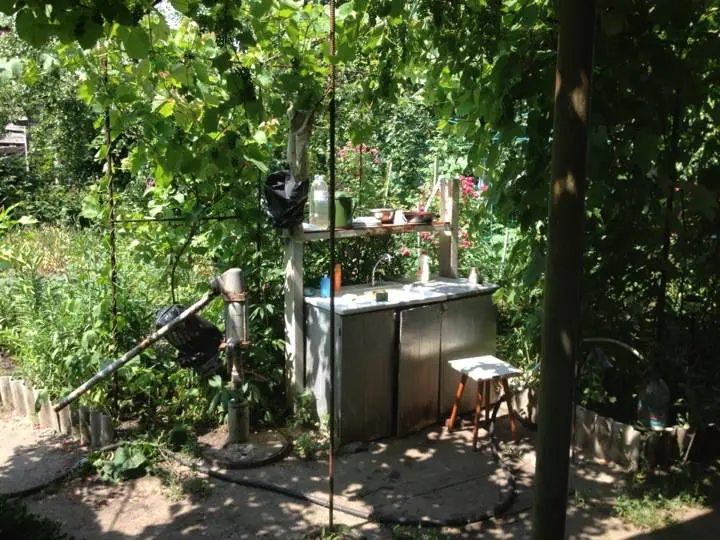
My first weekend at the dacha began early on a Saturday morning with a quick breakfast and then a long metro ride with my host, Oksana, to the northern suburbs of Kyiv. There we met with Oksana’s great-aunt, who is the chief caretaker of the family dacha and is herself also hosting another SRAS student this summer. Together, we took a stifling hot and ridiculously over-crowded bus to the outskirts of Vyshgorod, the immediate northern suburb of Kyiv, bringing with us all the essential ingredients for a dacha trip: sunscreen, swimsuits, personal reading, and of course lots and lots of food and drink.
Upon arrival, the dacha struck me as much more primitive and natural than I had actually expected. The bathroom was an outhouse; the outdoor shower was cold; and the garden was overgrown and disorganized according to standard American horticultural standards. Yet the setting could not have been more relaxing, and in-between gathering apples, eating too many вишни (cherries), and helping prepare шашлики (shish-kabobs) with wine, I fell in love with the unassuming and provincial setting.
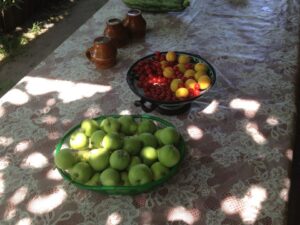
But relaxing, gardening, and eating at the dacha itself were not the only activities available to us—we also had easy access to the nearby Dnipro (Dnieper) River for swimming and sunbathing. Being a redhead with quite a bit of Irish, English, and Scandinavian blood in my veins, I don’t exactly tan very well, and was probably the palest person in the Dnipro River all weekend. Yet I spent a great deal of time swimming and relaxing on the beach, practicing Russian with my host family and discussing such topics as the proud Soviet tradition of personal fitness, and also property ownership in America compared to Ukraine.
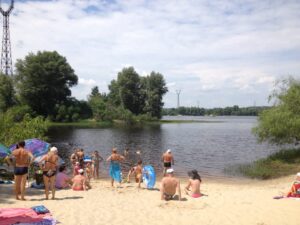
The latter topic was especially interesting to discuss, since most Americans idealize home ownership and real estate independence, whereas average Ukrainians are much more comfortable with the concept of living in city apartments, but greatly value having a dacha as well. The cultural contrasts were thought-provoking to talk about, as was the location of one of Ukrainian President Yanukovych’s personal dachas, which I was told was only a few kilometers away from ours.
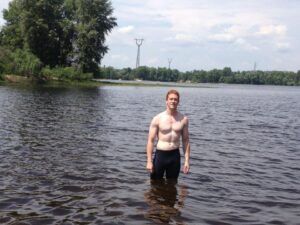
The day-and-a-half at the dacha flew by, and despite enduring innumerable mosquito bites and a second hot and crowded bus ride back to Kyiv, I enjoyed every minute of the trip, which greatly broadened my cultural understanding of Ukraine and perspectives on life, property ownership, and relaxation in general. While I might not be able to take my $17 million personal Augusta-Westland helicopter to the dacha, Yanukovych-style, I definitely intend to visit again during my summer in Kyiv, and would recommend that every SRAS student whose host family owns a dacha take advantage of an amazing opportunity to experience a key part of summer life in the former Soviet space.
